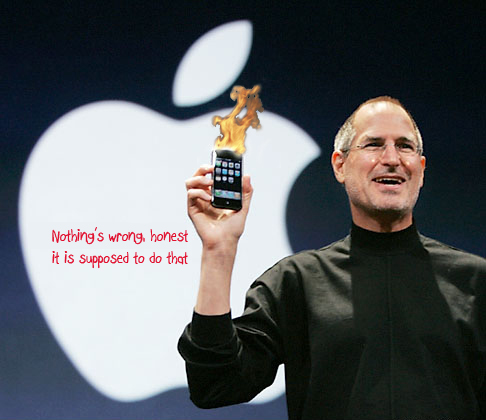From The Blog
-
ConnectWise Slash and Grab Flaw Once Again Shows the Value of Input Validation We talk to Huntress About its Impact
Written by Sean KalinichAlthough the news of the infamous ConnectWise flaw which allowed for the creation of admin accounts is a bit cold, it still is one that…Written on Tuesday, 19 March 2024 12:44 in Security Talk Read 703 times Read more...
-
Social Manipulation as a Service – When the Bots on Twitter get their Check marks
Written by Sean KalinichWhen I started DecryptedTech it was to counter all the crap marketing I saw from component makers. I wanted to prove people with a clean…Written on Monday, 04 March 2024 16:17 in Editorials Read 1582 times Read more...
-
To Release or not to Release a PoC or OST That is the Question
Written by Sean KalinichThere is (and always has been) a debate about the ethics and impact of the release of Proof-of-Concept Exploit for an identified vulnerability and Open-Source…Written on Monday, 26 February 2024 13:05 in Security Talk Read 1114 times Read more...
-
There was an Important Lesson Learned in the LockBit Takedown and it was Not About Threat Groups
Written by Sean KalinichIn what could be called a fantastic move, global law enforcement agencies attacked and took down LockBit’s infrastructure. The day of the event was filled…Written on Thursday, 22 February 2024 12:20 in Security Talk Read 1086 times Read more...
-
NetSPI’s Offensive Security Offering Leverages Subject Matter Experts to Enhance Pen Testing
Written by Sean KalinichBlack Hat 2023 Las Vegas. The term offensive security has always been an interesting one for me. On the surface is brings to mind reaching…Written on Tuesday, 12 September 2023 17:05 in Security Talk Read 2134 times Read more...
-
Black Kite Looks to Offer a Better View of Risk in a Rapidly Changing Threat Landscape
Written by Sean KalinichBlack Hat 2023 – Las Vegas. Risk is an interesting subject and has many different meanings to many different people. For the most part Risk…Written on Tuesday, 12 September 2023 14:56 in Security Talk Read 1857 times Read more...
-
Microsoft Finally Reveals how they Believe a Consumer Signing Key was Stollen
Written by Sean KalinichIn May of 2023 a few sensitive accounts reported to Microsoft that their environments appeared to be compromised. Due to the nature of these accounts,…Written on Thursday, 07 September 2023 14:40 in Security Talk Read 2126 times Read more...
-
Mandiant Releases a Detailed Look at the Campaign Targeting Barracuda Email Security Gateways, I Take a Look at What this all Might Mean
Written by Sean KalinichThe recent attack that leveraged a 0-Day vulnerability to compromise a number of Barracuda Email Security Gateway appliances (physical and virtual, but not cloud) was…Written on Wednesday, 30 August 2023 16:09 in Security Talk Read 2099 times Read more...
-
Threat Groups Return to Targeting Developers in Recent Software Supply Chain Attacks
Written by Sean KalinichThere is a topic of conversation that really needs to be talked about in the open. It is the danger of developer systems (personal and…Written on Wednesday, 30 August 2023 13:29 in Security Talk Read 1894 times Read more...
Recent Comments
- Sean, this is a fantastic review of a beautiful game. I do agree with you… Written by Jacob 2023-05-19 14:17:50 Jedi Survivor – The Quick, Dirty, and Limited Spoilers Review
- Great post. Very interesting read but is the reality we are currently facing. Written by JP 2023-05-03 02:33:53 The Dangers of AI; I Think I Have Seen this Movie Before
- I was wondering if you have tested the microphone audio frequency for the Asus HS-1000W? Written by Maciej 2020-12-18 14:09:33 Asus HS-1000W wireless headset impresses us in the lab
- Thanks for review. I appreciate hearing from a real pro as opposed to the blogger… Written by Keith 2019-06-18 04:22:36 The Red Hydrogen One, Possibly One of the Most “misunderstood” Phones Out
- Have yet to see the real impact but in the consumer segment, ryzen series are… Written by sushant 2018-12-23 10:12:12 AMD’s 11-year journey to relevance gets an epic finish.
Most Read
- Microsoft Fail - Start Button Back in Windows 8.1 But No Start Menu Written on Thursday, 30 May 2013 15:33 in News Be the first to comment! Read 116527 times Read more...
- We take a look at the NETGEAR ProSafe WNDAP360 Dual-Band Wireless Access Point Written on Saturday, 07 April 2012 00:17 in Pro Storage and Networking Be the first to comment! Read 87488 times Read more...
- Synology DS1512+ Five-Bay NAS Performance Review Written on Tuesday, 12 June 2012 20:31 in Pro Storage and Networking Be the first to comment! Read 82033 times Read more...
- Gigabyte G1.Sniper M3 Design And Feature Review Written on Sunday, 19 August 2012 22:35 in Enthusiast Motherboards Be the first to comment! Read 80337 times Read more...
- The Asus P8Z77-M Pro Brings Exceptional Performance and Value to the Lab Written on Monday, 23 April 2012 13:02 in Consumer Motherboards Be the first to comment! Read 70990 times Read more...
Displaying items by tag: Viruses
Bitcoin Mining utility hidden in Watch Dogs Torrent, The Karma side of the story
Whenever a new game hits the streets you can bet there will be a less-than-legal copy either right before, or right after. This was the case with the new game "Watch Dogs. Shortly before the retail release there were multiple copies available from different sources. One of the most popular sources was BitTorrent. Sadly, someone decided to taint that version with a bitcoin mining utility.
Malware trends and intentions: patches and fixes only lead to new exploits
Malware is a nasty thing that touches every corner of the consumer electronics market. No matter what type of device you have someone, somewhere will find a way to write malware to compromise it. Over the last two weeks there has been a resurgence of a very nasty bit of Malware called CryptoLocker. This malware sneaks in through poisoned websites or emails (typically in a .zip file) using multiple flaws in Java. Once in it reaches out and encrypts every Microsoft office file it can see including on shared drives. There is no real cure for this one and you end up losing data and time as you reload your computer.
Summary of malicious software in the 2012 by Kaspersky
 |
Kaspersky Lab has issued an annual report for 2012. This report presents some interesting statistics about malicious software that have marked the past year. The data that was analyzed by the well-known antivirus company using KSN system in the cloud (Kaspersky Security Network) to detect and collect information about attacks, points to more interesting things.
Microsoft patches Flash bugs in Windows 8
 |
On Friday Microsoft released an update for Flash on Windows 8 to protect their users from hacker attacks that could’ve started long ago since the bugs were here for quite some time. As it was stated about a week ago, Microsoft decided to take care of this bug and provided a patch for it Firday. Even though Flash Player is a product of Adobe, the whole work had to be done by Microsoft because they copied Google's Chrome and implemented Flash Player into their browser, Internet Explorer 10. They announced the implementation in May, saying “By updating Flash through Windows Update, like IE, we make security more convenient for customers.”
Windows 8 and RT Security; The Good the Bad and What It All Means
 |
As we have been working with Windows 8 and Windows 2012 server we have become increasingly concerned about security. Although Microsoft has claimed that they have improved security through items like the locked UEFI boot process there are still glaring omissions in security that keep popping up very recently it was noted that despite the claims from Microsoft of a more secure login process the password hint is exposed in the SID database and easily recovered remotely. We also found that users’ contact lists are also left in the open (and in plain text) and available to anyone that can gain remote elevated privileges; which is what almost all Viruses and Malware try to do.
Adverts coming to uTorrent
 |
One of the most popular torrent clients is uTorrent (used monthly by around 125 million users for downloading) will start to serve adverts within its software in the near future. An announcement stated that ads will be linked with the content of the torrents a user downloads, whether it is a legal or illegal download. uTorrent already makes decent money, between $15-20 million per year, thanks to a toolbar for web browsers that is installed as a part of the install package. However that doesnt seem to be enough for its directors so they hope to make more with the ads they will introduce in the new version
Apple News 7-26-2012; Two Viruses And A Lame Defense.
 |
Time Apple news for July 26th 2012. Today we have Apple’s “we should not have to pay” defense, a new worm in the iTunes store, and new Malware that has popped up for OSX users. These three things have loads of laughs and some interesting twists which we think you will enjoy. So up on deck first we will take a look at Apple’s we should not have to pay defense which they are presenting in one of the patent cases they have going with Samsung.
Exploit in Adobe Flash Allows iFrame to Hijack Webcam on Macs
 There is a long standing myth that PCs are susceptible to viruses and malware while Macs and Linux are not. Unfortunately for anyone that believes this myth there are consequences. One of these is a feeling of invulnerability when browsing. This false sense of security can lead to many things, including having your computer hijacked or being silently rolled into a giant Mac only botnet … I am sure you get my point. This phenomenon is not limited to Mac owners. PC owners that have “Full” Virus and Malware protection also get this false sense of security.
There is a long standing myth that PCs are susceptible to viruses and malware while Macs and Linux are not. Unfortunately for anyone that believes this myth there are consequences. One of these is a feeling of invulnerability when browsing. This false sense of security can lead to many things, including having your computer hijacked or being silently rolled into a giant Mac only botnet … I am sure you get my point. This phenomenon is not limited to Mac owners. PC owners that have “Full” Virus and Malware protection also get this false sense of security.
Now, the interesting thing is that while there are literally thousands of viruses and malware for Windows based systems in the wild there are actually more security loop holes in OSX that can be exploited by something as simple as a drive-by or other malformed code on a web page. One that caught our attention was an Adobe based Exploit (yes I know Steve Jobs wanted to ban Adobe). This little exploit allows someone to run a .swf file in a hidden iFrame. The .swf in question here has code to authorize turning on the end users webcam and broadcasting it to the source server.
Now this is nothing new and I have witnessed this kind of thing done at different security conventions. The thing that really is concerning is that this is being run on a version of Flash that is supposed to have code (called frame busting) to prevent this. What happened is that Adobe only patched part of the hole. They covered the whole page being loaded in an iFrame, but forgot to prevent the malformed .swf from being loaded into that same space. This little exploit was found by a computer science student at Stanford University named Feross Aboukhadjeh.
Now I know you are wondering what my rant at the beginning of this article about Macs has to do with this exploit… Well the kicker is that Aboukhadjeh has only been able to get this exploit to work on Macs and running either Firefox or Safari. The reason that he has been so successful is that with these browsers and OSX it is easier to make the iFrame transparent to the end user. Aboukhadjeh says that he does believe that this will work on other operating systems, but that it will take significantly more effort and would require layering the frame to avoid detection.
Adobe has been notified of the exploit
Source The Inquirer
Discuss in our Forum
Apple Macbook batteries vulnerable to hack
 Anyone remember Charlie Miller? He is the guy that has hacked more than his share of Apple products (and won a few PWN2Own contests). Well Charlie is back; this time he has found a hole in Macbook Batteries that can allow full control of the Macbook including uploading small programs that are undetectable by virus scanners. The reason they are undetectable is that the code is hidden inside the battery firmware. Charlie was able to get inside the firmware after digging through it and finding the passwords that allowed him access. Due to Apple’s tendency to use the same password for each line of its products (like the iPhone) it was very easy to spread this exploit to other systems.
Anyone remember Charlie Miller? He is the guy that has hacked more than his share of Apple products (and won a few PWN2Own contests). Well Charlie is back; this time he has found a hole in Macbook Batteries that can allow full control of the Macbook including uploading small programs that are undetectable by virus scanners. The reason they are undetectable is that the code is hidden inside the battery firmware. Charlie was able to get inside the firmware after digging through it and finding the passwords that allowed him access. Due to Apple’s tendency to use the same password for each line of its products (like the iPhone) it was very easy to spread this exploit to other systems.


